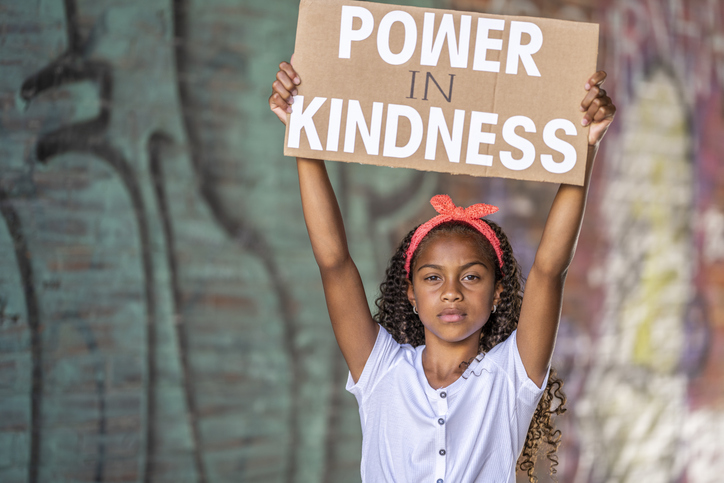
Source: FatCamera / Getty
Jan. 30 was a day of observation in schools worldwide, encouraging students to seek and promote nonviolence.
Known globally as the School Day of Non-violence and Peace, the holiday calls on classrooms to focus on the beliefs of nonviolent leaders past and present. It also encourages students to learn about nonviolent acts of change and resistance so they can feel more empowered in conflict. According to National Today, the holiday is about embracing different perspectives, being in solidarity, respecting human rights and peacefully coexisting.
Spanish poet Llorenç Vidal Vidal founded the School Day of Non-violence and Peace on Jan. 30, 1964, in Majorca, Spain. He believed schools were a particularly crucial place for instilling nonviolent leadership skills in the next generation.
The holiday falls on the death anniversary of nonviolent Indian leader Mahatma Gandhi. The School Day of Non-violence and Peace was originally named “Dia Escolar de la No-violència i la Pau,” and it’s sometimes referred to by the acronym “DENIP.”
This year’s celebration marked the holiday’s 60th anniversary.
Nonviolent protest and resistance are powerful tools that have been utilized by Black Americans to promote and enact change. Historymakers who’ve nonviolently paved the way for societal change include Philip Randolph, Ella Baker, Julian Bond and Bayard Rustin.
The Library of Congress notes that John Lewis, Jim Lawson and Rev. Dr. Martin Luther King all took inspiration from Gandhi’s usage of nonviolent protest when studying how to use the strategy in the U.S.
Despite the nonviolent ideals Gandhi promoted, the anti-British rule figure’s early views on race and Blackness make his nonviolent influence controversial. NPR reported that racism in his early writings from South Africa in 1903 said Black people “are troublesome, very dirty and live like animals.”
The anti-colonialist reportedly added that whites are “the predominating race.”
While biographer Ramachandra Guha claimed Gandhi “outgrew” his racist beliefs, the historical figure’s early writings on race were unequivocally violent toward Black people.
Regardless of the School Day of Non-violence and Peace’s complex roots, Black students have fought for its message for decades.
Building on the legacy of Ella Baker, Julian Bond and John Lewis (founding members of the Student Nonviolent Coordinating Committee), today’s Black scholars still unite and galvanize themselves in non-violent methods of change.
In November 2023, the Black Student Association and NAACP Ohio State University chapter moderated a panel discussion with a civil rights attorney and family members of police brutality victims. Their important conversation surrounded raising awareness on police brutality and the changes they’d like to see in local policing.
Black Student Union members and allies at River Ridge High School in Lacey, Washington, protested racism and sexual violence in January 2022. KUOW reported that they allegedly faced retaliation from the school’s administration — including “failing grades and other punitive measures.” Despite the consequences, Laila Markland, a senior at the time, highlighted their nonviolent protests’ important community-building.
“There was so much joy, even though it was so hard and we were scrambling most of the time to come out to the field every day, and turn on some music and dance, and then go march and hold up signs and hear these really heavy stories, and then come together and eat lunch and laugh. It was such a beautiful moment of these two very different kinds of feelings coming together.”
In a Gallup poll that collected data in July 2020, 72% of Black Americans and 78% of white Americans believed that nonviolent protests could help enact positive change for Black Americans. Moreover, Black Americans (at 69%) were nearly 20% more likely to think economic action, such as boycotts, was also helpful.
The analytics source noted that Black views on the societal impacts of nonviolent protest “are similar” to those of 1988.
RELATED CONTENT: “Martin & Malcolm’s Monumental Legacies Collide In Powerful Trailer For’ Genius: MLK/X'”









